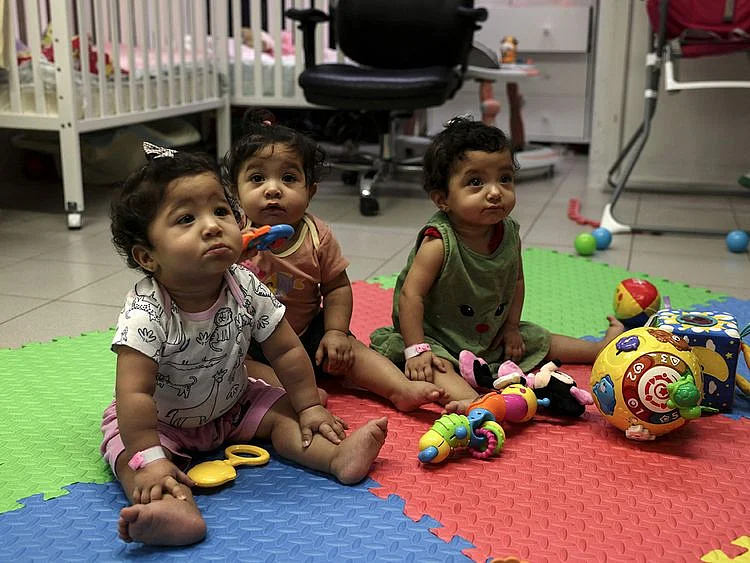Enduring trauma of war on children’s minds
Exploring the deep emotional and mental toll of conflict on young minds

War leaves behind a trail of devastation far beyond the physical destruction of buildings and infrastructure. Among the most vulnerable and profoundly affected victims are children, whose psychological scars can last a lifetime. The mental and emotional toll on young minds exposed to the horrors of conflict is an urgent concern that demands our attention and action.
Children who experience war are subjected to a range of traumatic events, including the loss of loved ones, displacement, witnessing violence, and enduring physical harm. These experiences can lead to a host of psychological issues, such as post-traumatic stress disorder (PTSD), depression, anxiety, and behavioural problems. The impact on their mental health is profound and multifaceted.
PTSD is one of the most common psychological conditions affecting war-affected children. Symptoms can include flashbacks, nightmares, severe anxiety, and uncontrollable thoughts about the traumatic events. These symptoms can interfere with daily functioning, academic performance, and social interactions. For children, whose coping mechanisms and emotional resilience are still developing, PTSD can be particularly debilitating.
The constant exposure to violence and the instability of war can lead to chronic feelings of sadness, hopelessness, and fear. Depression in children may manifest as withdrawal, irritability, changes in appetite or sleep patterns, and a lack of interest in activities they once enjoyed. Anxiety can cause children to be constantly on edge, experiencing excessive worry, and exhibiting avoidance behaviours.
Psychological effects of war
War can also lead to a range of behavioural issues in children. These can include aggression, defiance, difficulties with authority, and trouble forming and maintaining relationships. Such behaviours often stem from a deep-seated sense of insecurity and a need to assert control in an environment where they have felt powerless.
The psychological effects of war can significantly hinder a child’s cognitive development and academic progress. Trauma can impair concentration, memory, and the ability to learn. Displacement and disruption of education due to conflict further exacerbate these challenges, creating long-term barriers to personal and professional growth.
Despite the severe psychological impact of war, many children exhibit remarkable resilience. Factors that can promote resilience include strong family support, stable and nurturing environments, and access to mental health services. Community and educational support systems also play a crucial role in helping children cope with and recover from their traumatic experiences.
Addressing the psychological needs of war-affected children requires a multifaceted approach. Trauma-focused cognitive-behavioural therapy (TF-CBT) is one effective method that helps children process and reframe their traumatic experiences. Other therapeutic interventions include play therapy, which allows children to express their emotions and experiences in a safe and structured environment, and art therapy, which provides a creative outlet for trauma processing.
Education can be a powerful tool for healing. Schools provide a sense of normality and routine, which can be incredibly stabilising for children in post-conflict settings. Educational programs that incorporate psychosocial support and trauma-informed teaching methods can help children rebuild their lives and regain a sense of control and purpose.
Addressing the psychological impact of war on children requires coordinated efforts at both international and community levels. Humanitarian organisations play a crucial role in providing mental health services, safe spaces, and educational support to children in conflict zones. Local communities, too, must be involved in creating supportive environments that foster healing and resilience.
The psychological impact of war on children is intense and long-lasting. While the scars may not always be visible, the emotional and mental wounds are deep and require comprehensive, compassionate, and sustained efforts to heal. By prioritising the mental health and well-being of war-affected children, we can help them navigate the path to recovery and build a future where they can thrive, free from the shadows of their past traumas.
The resilience of these young survivors is a testament to the strength of the human spirit, and it is our collective responsibility to support and nurture that strength in every way possible.
Maram Saleh, a Bahraini law student, finds inspiration in the realms of research and writing
Sign up for the Daily Briefing
Get the latest news and updates straight to your inbox
Network Links
GN StoreDownload our app
© Al Nisr Publishing LLC 2026. All rights reserved.